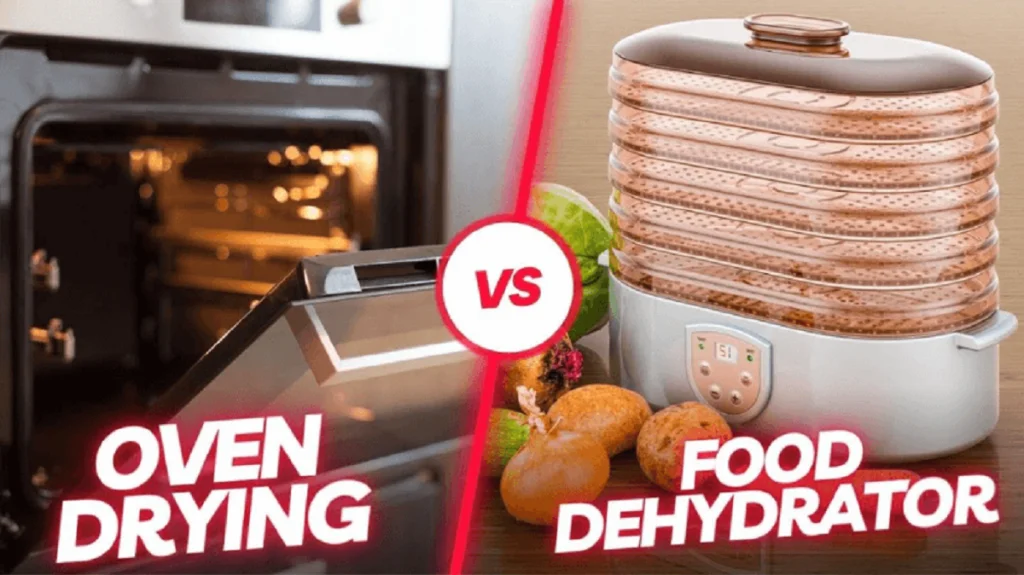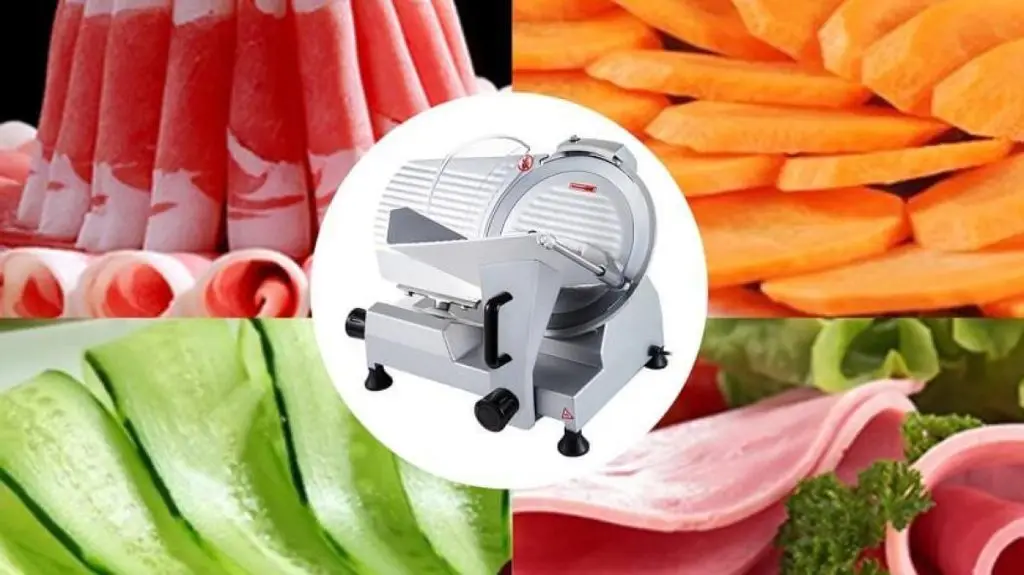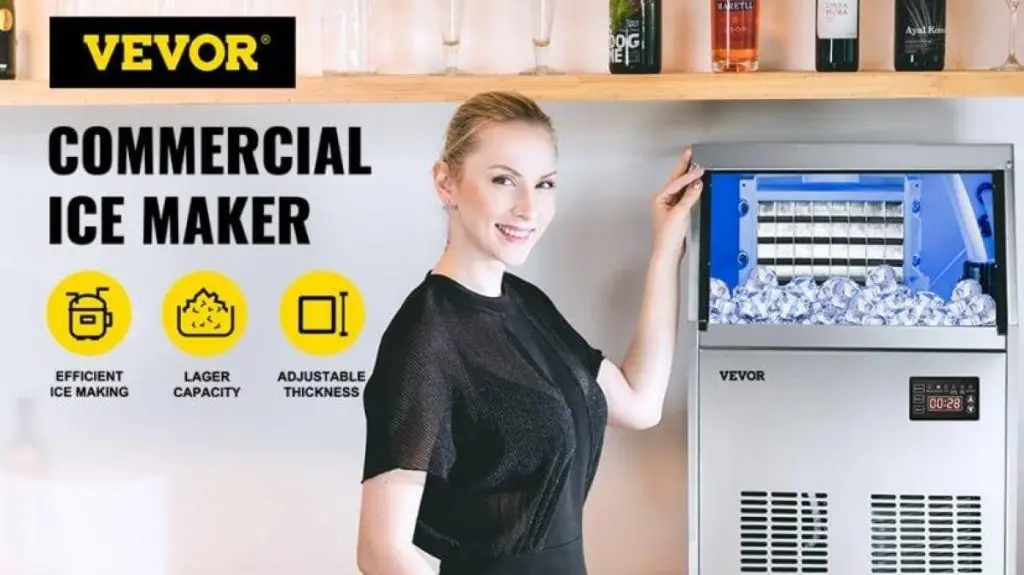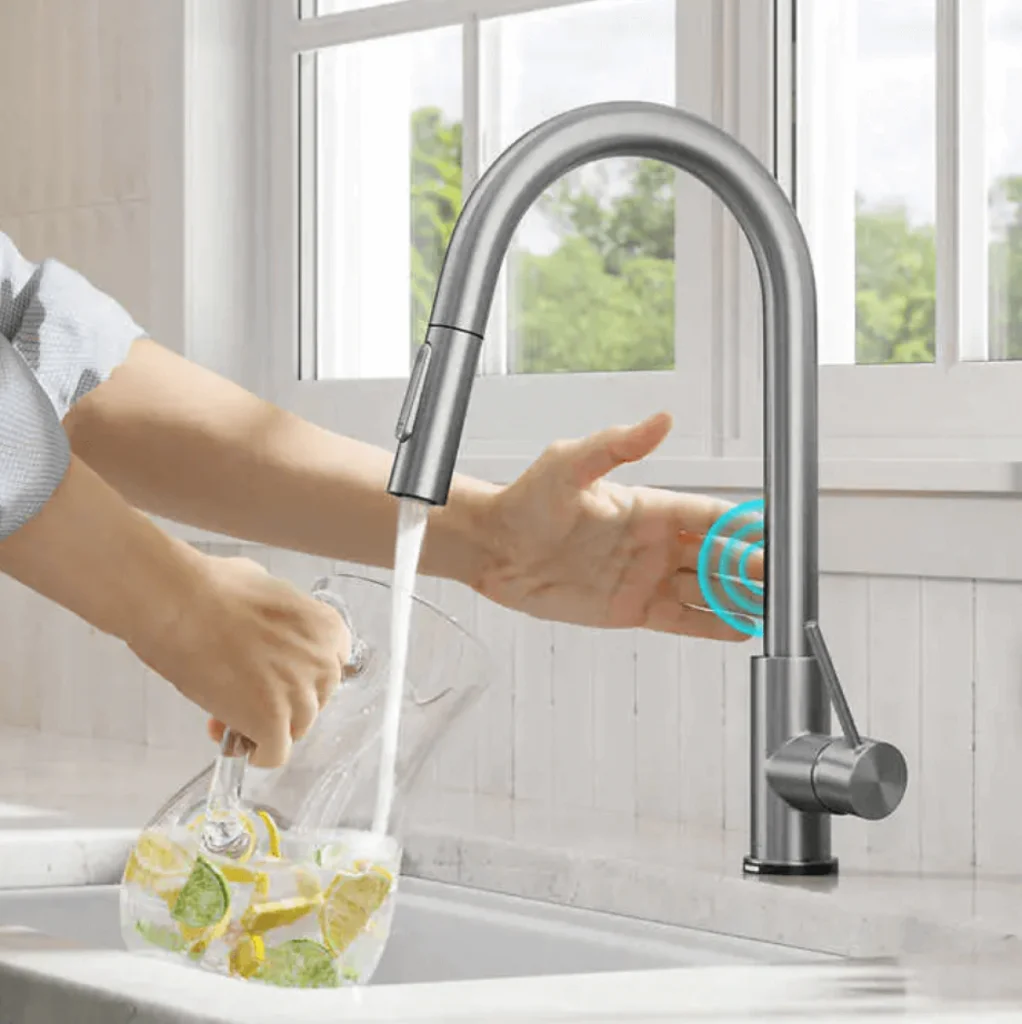Water is not only the elixir of our life, but all sorts of life forms need to exist, including microorganisms. Forcing water out of food ends the food bacteria’s life, elongating the meal’s shelf-life.
The oldest and most effective method to achieve that is by use of low heat and dry air. Both ovens and food dehydrators use this combination efficiently to dry foods that we can utilize all year.
Today’s post on food dehydrators vs ovens is an attempt to point out some of the factors that will help you decide which one of the machines makes a better choice for you.
Table of contents
Dehydrator vs. Oven: Breaking Down the Basics
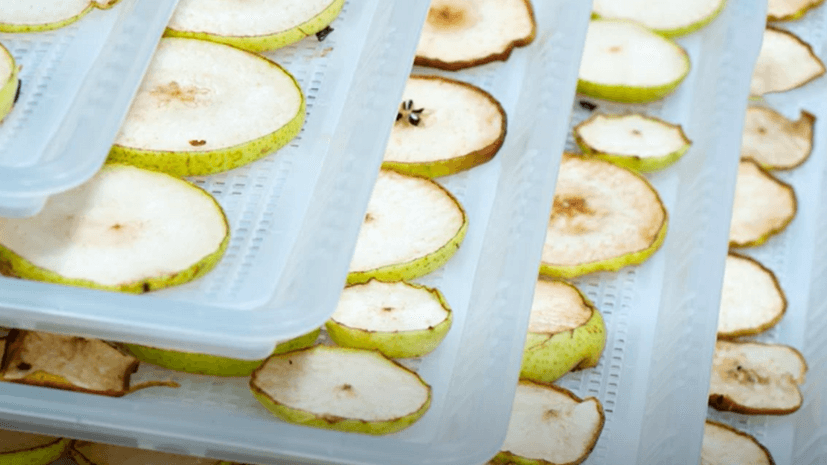
Before delving directly into making a decision, let’s start from the basics and see how the two devices differ.
Basics of Ovens
People have been drying food in ovens for years, but dehydrators work better. You can make them perform a nearly good job if you can manage to maintain a low temperature.
However, it is not as easy as it sounds because ovens often struggle to sustain low temperatures.
Most standard and conventional ovens have a heating element on the top and lack a fan. They can still dry snacks for you, but the results might not be as good as a dehydrator.
Basics of Electric Dehydrators
When it comes to electric dehydrators, the name explains itself. These machines use high temperatures to force moisture out of the meal. Hot air circulating smoothly inside the unit absorbs it in the form of vapors.
The food you put inside a food dehydrator is less likely to come out burnt, as these machines use hot air to absorb moisture. Drying meat and fruits accurately is a tough job, even if that is not an issue if you buy a food dehydrator.
Another good thing about electric food dehydrators is that they don’t impact the nutritional factor of your meal.
Food Dehydrator vs. Oven: Basic Purpose
Ovens are capable of offering a wide range of temperatures, which are mostly very high. So, the main purpose of an oven is to bake, broil, or cook food. On the other hand, dehydrators can also maintain different temperature ranges, mostly low. It is because they are designed to dry foods rather than cook meals.
Analyzing Effectiveness: Gentle Drying vs. High Heat
While we’re at it, I don’t see a reason why we cannot compare the impact of both types of heating:
Benefits of Gentle-Drying
Drying food in a dehydrator has its own perks, especially in terms of preserving colors, tastes, and flavors.
The controlled temperatures and slow drying reduce the risk of overcooking or burning. As a result, the natural aroma and flavors of the food remain unfazed, rather intensified. It might be interesting to note that slow heating minimizes the breakdown of color pigment in most foods, especially vibrant fruits and veggies. So, your dried snacks will be as visually appealing as fresh ones.
Above all, gentle dehydration is an excellent way to go if you don’t want to compromise on the nutritional factor.
Lower temperature and smooth air circulation reduce the degeneration of nutrients in your food. So, in a way, you end up with food that is not only visually appealing but great in terms of nutritional value. Besides, leaving no room for moisture diminishes the breeding space for many food bacteria, reducing the risk of foodborne illnesses.
Impact of Oven Drying
Excessive heat produced inside an oven can destroy various food enzymes, vitamins, and essential nutrients. So, you can expect oven drying to impact the nutritional value of your food considerably.
Oven-dried foods can change texture or color due to high-temperature exposure. It means you don’t only have to compromise on nutrition but visual appeal, too.
It is possible to minimize the impact of oven drying on the food, but it is not entirely avoidable. Pre-treatment, such as blanching or the use of ascorbic acid, can help at times.
Key Differences: Cooking Time, Energy Efficiency, and Space Utilization

Now that we are familiar with the basics, let’s compare the two options on the basis of their features:
Cooking Time
I cannot help but begin by comparing a dehydrator vs. an oven’s cooking time.
It is one of the most critical factors that sets the two heating appliances apart. Drying food in an oven is a pain at times. It is slow and can sometimes take up to 12 hours. You might have to wait half a day before enjoying your favorite beef jerky.
On the other hand, dehydrators come with a built-in thermostat. A thermostat will sustain the temperature and speed up the heating process simultaneously. It means your favorite meal will be on the table within a few hours, which is a win.
Energy Efficiency
If you have already started searching for food dehydrators, you might have realized there are only electric ones.
A great thing about ovens is that they are available in both options, electric and gas. Despite offering two different types of power sources, they are a little less efficient compared to food dehydrators. The difference lies in the energy consumed to generate heat.
Besides, dehydrators require less time to dry food compared to ovens and are more cost-efficient. I’d say dehydrators are a one-time investment and a long-term saving. You will notice this when you’re drying foods frequently, but the bill would still be less than that of an oven.
Space Requirements
Generally, food dehydrators are compact units with trays stacked above each other. The size can vary based on the number of trays and the space between them. But on average, home models are small enough to fit inside your kitchen cabinet.
Ovens also come in various sizes, from small countertop models to large and fixed ones. Since they are more versatile than meal dehydrators, they may take more of your kitchen space.
So, in case you are confused between a dehydrator and an oven, you would possibly not want to ignore the dimensions of your kitchen. Be it an oven or a dehydrator, a piece of huge equipment isn’t always appropriate for a small kitchen with much less garage area.
The Pros and Cons: Dehydrator vs. Oven Drying
While each appliance functions as a heating factor, there are a few pros and cons to the use of each. You can not compare a dehydrator vs. an oven without comparing their benefits and downsides.
Pros of Electric Dehydrator
- The cost-efficiency of an electric food dehydrator goes beyond fuel efficiency. It lets you enjoy limited-time fruits without having to spend on canned foods. Also, they don’t spoil as quickly as fresh foods.
- Dehydrating sugars intensify their flavor, so sweet foods taste even more sweet.
- You won’t have to take processed foods for hiking or camping. Simply dehydrate your meat and some dry fruits for healthy snacking out in the wild.
- It is a false impression that an electric dehydrator is tough to maintain when, in reality, it only desires little care.
Cons of Electric Dehydrator
- Dehydrating food breaks vitamins A and C in fruits and veggies, which is unavoidable. Pre-treating your food might help diminish the impact, but not entirely.
- Although dehydration does not alter food’s taste a lot, adjusting to the new taste could be a hurdle for some. If you are not used to eating dried foods, you must bear this fact in mind.
Pros of Oven Drying
- Ovens are multi-purpose kitchen appliances. You won’t have to worry about making space for an extra machine or spending money on two different tools.
- Usually, ovens offer a large capacity compared to dehydrators. You can dry a large batch of food in one go.
Cons of Oven Drying
- A heating oven spends more time drying a batch of food than an electric dehydrator would take to dehydrate the same batch.
- Although a heating oven offers two types of power sources, they are not more energy efficient than a food dehydrator.
- Most users might complain about uneven dehydration because it is a struggle to maintain low temperatures in ovens constantly.
Cost Consideration: Is a Food Dehydrator Worth the Investment?
Investing in a dehydrator can seem like a lot in the beginning. But trust me when I say it will be your purchase decision ever in the long run.
Just like heating ovens, dehydrators also have a variety of sizes and ranges to fit users’ needs.
VEVOR’s electric dehydrator is an excellent option for you in case you are looking for an awesome dehydrator. It will meet your expectations and may not even need you to spend a stash of cash.
Summing Up
It’s hard to say there is a winner in dehydrators vs ovens. The reason is a package of both perks and weaknesses they come with.
I might highly recommend making an investment in an electric dehydrator, even when you have an oven. Dehydrators will always be superior in drying food, being the efficient ones.
You can explore VEVOR’s product range for amazing and affordable food dehydrators to suit your needs and your wallet.

